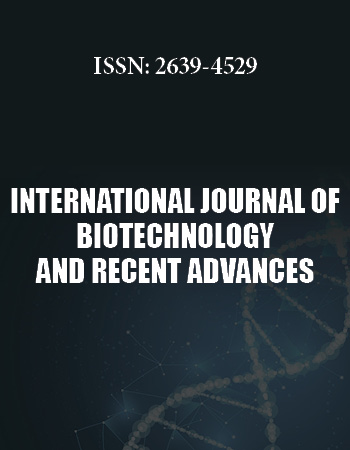International Biotechnology and Research Conference
April 25-27, 2018 Rome, Italy
Production and Evaluation of Protease Enzyme (B.subtilis strain) for Eco-friendly Leather Processing Empowerment in Ethiopian Tanneries
Ku Lueven Engineering College, Belgium
Across the world the tanning industries are facing a high challenge pressure from strict legislation articulated for the purpose of protecting and preserving the environment. In Ethiopia leather processing industry is considered from the directions of economic activity and environment polluting concern. In order to operate it within the environmentally compatible situations and sustain the agriculture development led industrialization policy and the ongoing development strategy of the tanning industry in Ethiopia should come out that can mitigate the adverse effect of the conventional leather processing methods particularly that of lime-sulphide dehairing in beam house operation. This study was focused on dehairing enzyme production as green technology alternative for the existed conventional unhairing practice. The B.subtilis strain was produced from microorganism from beam house waste from the local leather processing areas, sub-cultured and characterized for its growth and dehairing protease production in terms of pH, temperature, incubation time and growth and production media composition. The combined effects of pH and temperature on protease production also investigated and they were found to have high interactive effect. After the culture conditions for production were clearly studied the alkaline protease was produced in a laboratory scale fermenter containing ingredients with required concentration of glucose, peptone, MgSO4.7 H2O, KH2PO4 and FeSO4.7H2O and it was maintained at a temperature about 37°C for 24 to 48 hoursand trembled uncontrollably in the incubator operated close to 140rpm. After completion of fermentation time all fermented sauce base of the broth was separated by centrifuge rotated at 10,000 rpm at 4°C for 15-18 min and the clear liquid part was taken for crude enzyme preparation. From this clear supernatant liquid part the concentration of protease enzyme produced in the production medium was analyzed at best conditions near to PH 8.5, temperature 37°C and incubation time of 24 hours and closer to the 96 hrs operations maximum amunt of enzyme was yielded. The final protease product was recovered, partially purified and stabilized by primary downstream processing such as crude enzyme formulation, ammonium sulphate precipitation. The use of the protease product of this technique on sheep skins resulted in a highly promising hair removal efficiency that can really compete with lime-sulphide chemical unhairing process.
Biography:
Biruk Abate Fenta is Lecturer and researcher at Bahir Dar Institute of Technology, Bahir Dar University in the Faculty of Chemical and Food Engineering and Biotechnology Research Institute. He received a B.S. degree in Chemical Engineering from Bahir Dar Institute of Technology, Bahir Dar University, Ethiopia and the Master of Technology in Chemical Engineering from the Addis Ababa Institute of Technology, Addis Ababa University, Ethiopia. He has been active in the area of Postharvest and Energy technologies, water quality and environment, chemicals and Pharmaceuticals researches in addition to his regular work of lecturing undergraduate students and mentoring postgraduate students during their thesis work. His national experience includes consulting feasibility project works of household/small scale, medium and large scale industries across his country. Currently he is an international PhD student in Ku Leuven Engineering Technology, Leuven, Belgium


